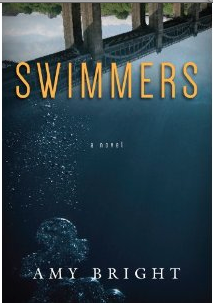There is this book that I read when I was younger that made Renaissance Fairs sound really appealing. I mean, I am sure there are a lot of books that probably have the ability to do that, but Carol Matas’ Telling sort of made it seem like it would be one of the places you’d want to go to in the summer like, “Oh hey, medieval times, let’s get a turkey leg!”
The first book I read by Matas, a Canadian author for young adults, was Daniel’s Story. It is set during WWII and follows fifteen-year-old protagonist Daniel as he is moved between cities, concentration camps, and work camps during the Holocaust. Matas followed up Daniel’s Story with several other novels set during WWII such as After the War and The Garden. When I picked up Telling, I didn’t read the back synopsis, I just sort of assumed that it would be another novel set during WWII, like the other Matas novels I had read.
It was really nothing like that. Telling documents the nightly “telling” sessions between three sisters: thirteen-year-old Corey, fifteen-year-old Alex, and eighteen-year-old Sue. They meet in the attic of the house they live in with their mother and take turns talking about how the summer is going for each of them. It’s an interesting multi-character narrative where Matas really gets to experiment with point of view. Each sister embodies a personality that allows for very different situations, ones that Corey, Alex, and Sue can interact with and hear about, and experience without having been there. Matas engages with a way of talking story between the sisters, but the dialogue never feels like a movie script or screenplay. It feels real and organic and captures something about the characters that strict description cannot. Matas really lets the sisters speak for themselves, and share with each other (and the reader) the events that best describe them and reveal how they want to be represented.
Middle sister Alex is the backbone of this narrative. Her stories revolve around the Renaissance Fair that she works at for the summer, her first job as a teenager. She is a self-described writer and composes a play about witches that takes place during the Middle Ages to be performed at the fair. Corey, the youngest sister, talks about her friends as she tries to figure out how she can fit in without succumbing to peer pressure. A shared story between Alex and Corey reveals that Corey interrupts Alex’s play at the fair, and this largely influences the tensions that play out in the real “telling sessions.”
Finally, as the eldest sister, Sue experiences a kind of first love that doesn’t end up being as fulfilling as she hoped it would be. Memory and real time alternate as the sisters share experiences with one another, telling stories and navigating the relationships that result from the content.
Telling is a book that I can’t help but read once a year. It’s short – only 120ish pages – and is mostly driven by dialogue. It draws the reader into the story while also propelling the narrative forward, so that the entire book acts as a small whirlpool of stories that spiral through towards the end. The Renaissance Fair provides an interesting and unique backdrop for many of the conflicts to play out, and feels real without being gimmicky. Alex encounters all of the problems that come with a first job, but these are contained within an almost fantastical situation that arises from the Medieval elements. The succinct length of the novel similarly drives the reader directly into the story: we may not have much time with these characters, but we do get to know them very well in that time.
I think Telling really captures something about young adult experience, and uses tools like dialogue and multi-person narrative to explore them. It’s a book that I read fairly often, this small pocket of a summer recounted at night between three sisters.





No comments:
Post a Comment